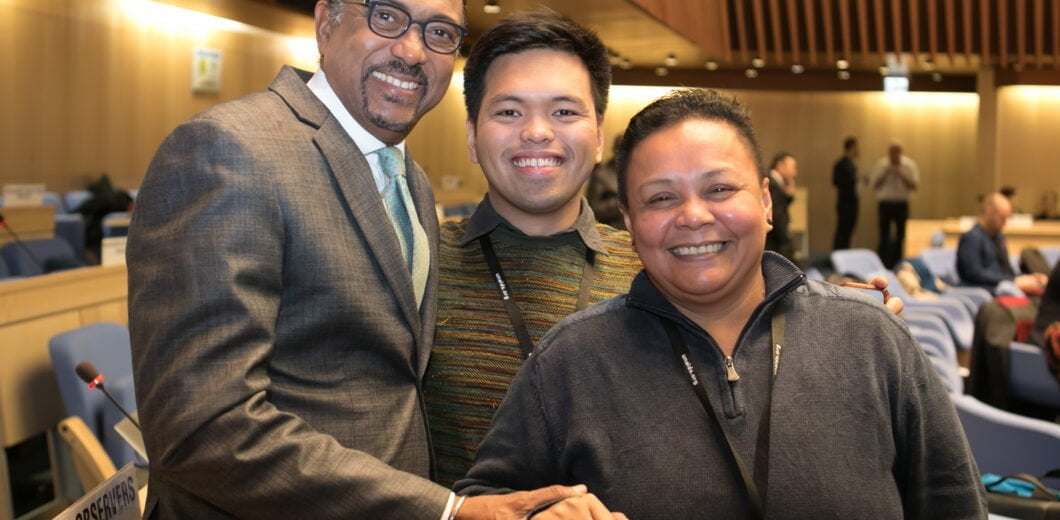Introduction
Marsha Martin, North American delegate
The UNAIDS 41st Programme Coordinating Board (PCB) took place in Geneva, Switzerland December 12-14, 2017, under the leadership of Honorable Kwaku Agyemang-Manu, Health Minister of Ghana. This PCB provided for updates on governance and administrative matters, including decisions taken to continue the implementation of recommendations from the Spring 2017 Global Review Panel (GRP) Joint Programme action plan and development of the strategic resource mobilization plan. Many of us in the NGO Delegation openly challenged and encouraged the Joint Programme, Cosponsors and Members States, that doing ‘business as usual’ was not enough. We maintained our position that the UNAIDS we need needs to do things differently, at headquarters and in the field.
The NGO Delegation presented a report on who was being left behind in the 90-90-90 targets. The report encompassed the agenda for the meeting and provided continuity on the issues presented by the NGO Delegation in previous reports. On the issue of stigma and discrimination raised during this and previous PCBs, we proposed to the PCB the establishment of a global compact on elimination of stigma and discrimination.
The 41st PCB meeting also convened two-end of the day drafting rooms following the daily adjournment of the meeting, and a third meeting during the midday lunch break. The first drafting room achieved an all-time record for remaining active and engaged for nearly eight hours, from 7 pm until 3:30 am. Two issues from the NGO Report emerged as concerns to several Member States: disaggregation of data and role of civil society in identifying those left behind. Several Member States stated that the process of disaggregation would be difficult, and too costly for small countries. Throughout the course of the evening, a few Member States insisted on consulting with their respective capitals to determine the best language for the Decision Point (DP) on disaggregation. Another contentious issue was the acceptance of a report from the Global Prevention Coalition, with several Member States raising questions about the role of the GPC vis-à-vis the PCB, as the Coalition is not an official program of UNAIDS and not all members of the PCB were engaged nor invited to participate in the organization of the Coalition.
The NGO Delegation maintained presence and active engagement throughout the drafting room negotiations and had to propose language in some areas. It also enabled us to reflect on how to strategize better in future PCB meetings, especially when it comes to negotiating with Member States. After lengthy discussions, the Decision Points were finally agreed on.
Finally, we extend our thanks and appreciation to our outgoing Delegates, Jeffry Acaba, representing YouthLEAD (2015-2017) and Martha Carillo representing CNet+ (2017). We would also like to welcome on board, Aditia Taslim Lim from Rumah Cemara-Indonesia and Millie Milton from Guyana Trans United. Both Delegates will join the Delegation for the period, 2018-2019.
